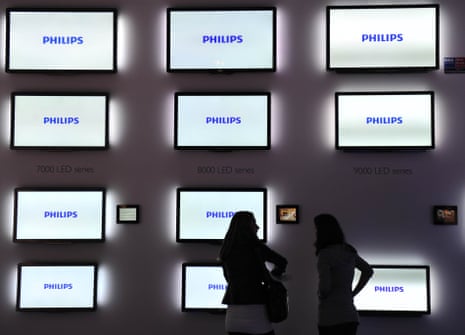Dutch technology company Philips plans to close its last manufacturing plant in the UK, after its chief executive previously warned that a hard Brexit could harm its ability to export products.
The plans, now under consultation with employees, would see Philips close its plant at Glemsford in Suffolk, putting 430 jobs at risk. Production at Glemsford, which currently makes products including baby bottles, will transfer to Drachten in the Netherlands next year.
A spokesperson for the company said the closure of the factory would have happened regardless of Brexit, but acknowledged that the current political situation in the UK would have been a factor in executives’ thinking.
In a statement, Philips said it was forced to manage the “potential impact of various ongoing geopolitical challenges, including uncertainties and possible obstructions that may affect its manufacturing operations”. The majority of products made in Glemsford were intended for export, the company said.
The closure follows stark warnings that Brexit would harm the competitiveness of the Suffolk factory’s products for export from the Philips chief executive, Frans van Houten.
In October, van Houten said a customs union between the UK and the EU was “a minimum” requirement for a negotiated Brexit. He said: “If that were not to happen we would need to rethink our manufacturing footprint.”
Philips, which was once best known for consumer electrical items such as light bulbs and televisions, has in recent years narrowed its focus to more profitable healthcare technology.
The Glemsford factory closure comes as part of Philips’ 2016 decision to cut the number of manufacturing locations from 50 to 30 as part of that plan.
Neil Mesher, the chief executive of Philips’ UK and Ireland operations, said the company remains committed to selling to the UK market.
Philips employs more than 1,000people in the UK outside of Glemsford, the majority of whom are based in Guildford in Surrey.
